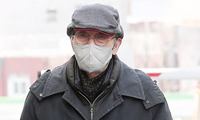But Mr. Putin never had the resources to back his swagger. Russia has an economy roughly the same size as Brazil’s. And, as we’re now seeing, it’s highly vulnerable to financial crisis . a vulnerability that has a lot to do with the nature of the Putin regime.
For those who haven’t been keeping track: The ruble has been sliding gradually since August, when Mr. Putin openly committed Russian troops to the conflict in Ukraine. A few weeks ago, however, the slide turned into a plunge. Extreme measures, including a huge rise in interest rates and pressure on private companies to stop holding dollars, have done no more than stabilize the ruble far below its previous level. And all indications are that the Russian economy is heading for a nasty recession.
The proximate cause of Russia’s difficulties is, of course, the global plunge in oil prices, which, in turn, reflects factors . growing production from shale, weakening demand from China and other economies . that have nothing to do with Mr. Putin. And this was bound to inflict serious damage on an economy that, as I said, doesn’t have much besides oil that the rest of the world wants; the sanctions imposed on Russia over the Ukraine conflict have added to the damage.
But Russia’s difficulties are disproportionate to the size of the shock: While oil has indeed plunged, the ruble has plunged even more, and the damage to the Russian economy reaches far beyond the oil sector. Why?
Actually, it’s not a puzzle . and this is, in fact, a movie currency-crisis aficionados like yours truly have seen many times before: Argentina 2002, Indonesia 1998, Mexico 1995, Chile 1982, the list goes on. The kind of crisis Russia now faces is what you get when bad things happen to an economy made vulnerable by large-scale borrowing from abroad . specifically, large-scale borrowing by the private sector, with the debts denominated in foreign currency, not the currency of the debtor country.
In that situation, an adverse shock like a fall in exports can start a vicious downward spiral. When the nation’s currency falls, the balance sheets of local businesses . which have assets in rubles (or pesos or rupiah) but debts in dollars or euros . implode. This, in turn, inflicts severe damage on the domestic economy, undermining confidence and depressing the currency even more. And Russia fits the standard playbook.
Except for one thing. Usually, the way a country ends up with a lot of foreign debt is by running trade deficits, using borrowed funds to pay for imports. But Russia hasn’t run trade deficits. On the contrary, it has consistently run large trade surpluses, thanks to high oil prices. So why did it borrow so much money, and where did the money go?
Well, you can answer the second question by walking around Mayfair in London, or (to a lesser extent) Manhattan’s Upper East Side, especially in the evening, and observing the long rows of luxury residences with no lights on . residences owned, as the line goes, by Chinese princelings, Middle Eastern sheikhs, and Russian oligarchs. Basically, Russia’s elite has been accumulating assets outside the country . luxury real estate is only the most visible example . and the flip side of that accumulation has been rising debt at home.
Where does the elite get that kind of money? The answer, of course, is that Putin’s Russia is an extreme version of crony capitalism, indeed, a kleptocracy in which loyalists get to skim off vast sums for their personal use. It all looked sustainable as long as oil prices stayed high. But now the bubble has burst, and the very corruption that sustained the Putin regime has left Russia in dire straits.
How does it end? The standard response of a country in Russia’s situation is an International Monetary Fund program that includes emergency loans and forbearance from creditors in return for reform. Obviously that’s not going to happen here, and Russia will try to muddle through on its own, among other things with rules to prevent capital from fleeing the country . a classic case of locking the barn door after the oligarch is gone.
It’s quite a comedown for Mr. Putin. And his swaggering strongman act helped set the stage for the disaster. A more open, accountable regime . one that wouldn’t have impressed Mr. Giuliani so much . would have been less corrupt, would probably have run up less debt, and would have been better placed to ride out falling oil prices. Macho posturing, it turns out, makes for bad economies.
스마터리빙
more [ 건강]
[ 건강]이제 혈관 건강도 챙기자!
[현대해운]우리 눈에 보이지 않기 때문에 혈관 건강을 챙기는 것은 결코 쉽지 않은데요. 여러분은 혈관 건강을 유지하기 위해 어떤 노력을 하시나요?
 [ 건강]
[ 건강]내 몸이 건강해지는 과일궁합
 [ 라이프]
[ 라이프]벌레야 물럿거라! 천연 해충제 만들기
 [ 건강]
[ 건강]혈압 낮추는데 좋은 식품
[현대해운]혈관 건강은 주로 노화가 진행되면서 지켜야 할 문제라고 인식되어 왔습니다. 최근 생활 패턴과 식생활의 변화로 혈관의 노화 진행이 빨라지고
사람·사람들
more많이 본 기사
- 아이폰 있으면 국내선 여권 불필요
- 메디케이드·식량·주거 보조 이용… 영주권 ‘불이익’
- 한인 마켓도 덮친 ‘대대적 이민 단속’
- 팽팽한 피부·부푼 입술… “워싱턴 대세 성형스타일은 ‘마가 여성’”
- [화제] 동명이인도 ‘깜짝’ … 스크래치 100만달러 잭팟
- 고개 숙인 일본, 주머니에 손 넣은 중국
- “티켓은 비자아냐”
- 한인타운 올림픽·버몬트 총격 사건
- ‘트럼프 신속대응팀’ 비판에 연방 법무부 내부 ‘흔들’
- 의회, ‘엡스타인 파일 공개 법안’ 가결…트럼프 서명만 남아
- 푸드스탬프 재신청 의무화 추진 300여만명 식비지원 상실 위기
- AI 확산에 올해 일자리 110만개 사라져
- 영국 학교, 케데헌 ‘금지령’… “기독교와 맞지 않아”
- LA 곳곳 ‘폭우 후유증’… 타운도 팟홀 몸살
- ‘함께하는 연말의 따뜻한 기적’… “싱글맘 가정에 희망을”
- 뉴저지 어린이 합창단, 타임스퀘어 물들였다
- 대만, 첨단반도체 통제 “사전 허가받아야 수출”
- 홍명보호, 가나에 1-0 승리로 유종의 미… 내용은 아쉬워
- 한국·캔자스 운전면허 상호인정… 가주는 ‘깜깜’
- 한인은행 수익률… LA 카운티 은행 중위권 그쳐
- 이젠 프리웨이도 달리는 웨이모
- 김&리 회계법인, 업무협약 체결
- 이탈리아 축구, 3회 연속 월드컵 본선 탈락 위기 ‘악몽’
- 챗GPT·X 등 한때 접속 불통 사태
- “무너진 캘리포니아 재건하겠다”
- 신규 유학생 17% 급감… 트럼프 비자정책 ‘역풍’
- “소득대비 과도 공제… IRS 감사타겟 될 수도”
- 성범죄자에 ‘불륜 상담’ 하버드 전총장 활동중단
- ‘트럼프 가자 평화구상’ 유엔 안보리 통과
- 데이터센터 건설 열풍 속…미국 겨울철… 1
- 사라진 백악관의 이스트 윙
- 디트로이트, 18년 만에 10연승 ‘신바람’
- ‘호객 없는 수산시장’… 제철 맞은 방어, 새우 먹으러 울진 간다
- ‘유아인과 대마흡연’ 혐의 유튜버 2심 집행유예
- 비트코인 9만달러 붕괴 최고치 대비 29% 하락
- 소비 양극화… 저소득층 패스트푸드도 못가
- [인터뷰] “원스톱 협진케어… 온 가족 누리는 진료 제공 보람”
- 홈디포, 실적 하향 ‘소비 둔화 경고음’
- [경제 트렌드] “거스름 줄 동전이 없어”… 1센트 폐지 혼란
- 로봇시대 게임체인저… K원팀으로 100조시장 뚫는다
- 검찰 물갈이, 중앙지검장 박철우·반부패 주민철… “안정·쇄신”
- 맥도널드, 연말 인기메뉴 ‘맥립’ 출시
- 현대차, 러시아 복귀하나… “현지 상표 등록”
- K전력기기 ‘빅4(HD현대일렉·효성중·LS일렉·일진전기)’ 수주 33조 돌파… 5년치 일감 따냈다
- [송년모임] 충청 향우회 내달 4일
- 트럼프, 공화 장악력 약화… ‘셧다운 핵옵션·엡스타인’ 파열음
- “화장실에서 꼭 확인해라”… ‘이런 모양’ 변 계속 나온다면 대장암일 수도
- 우편 요금 내년 1월부터 또 오른다
- 교황, 트럼프 이민정책 거듭 비판… “극도로 멸시적인 대우”
- [만화경] ‘국부론’과 “기업이 곧 국력”
1/5지식톡

-
 테슬라 자동차 시트커버 장착
0
테슬라 자동차 시트커버 장착
0테슬라 시트커버, 사놓고 아직 못 씌우셨죠?장착이 생각보다 쉽지 않습니다.20년 경력 전문가에게 맡기세요 — 깔끔하고 딱 맞게 장착해드립니다!장착비용:앞좌석: $40뒷좌석: $60앞·뒷좌석 …
-
 식당용 부탄가스
0
식당용 부탄가스
0식당용 부탄가스 홀세일 합니다 로스앤젤레스 다운타운 픽업 가능 안녕 하세요?강아지 & 고양이 모든 애완동물 / 반려동물 식품 & 모든 애완동물/반려동물 관련 제품들 전문적으로 홀세일/취급하는 회사 입니다 100% …
-
 ACSL 국제 컴퓨터 과학 대회, …
0
ACSL 국제 컴퓨터 과학 대회, …
0웹사이트 : www.eduspot.co.kr 카카오톡 상담하기 : https://pf.kakao.com/_BEQWxb블로그 : https://blog.naver.com/eduspotmain안녕하세요, 에듀스팟입니다…
-
 바디프렌드 안마의자 창고 리퍼브 세…
0
바디프렌드 안마의자 창고 리퍼브 세…
0거의 새제품급 리퍼브 안마의자 대방출 한다고 합니다!8월 23일(토)…24일(일) 단 이틀!특가 판매가Famille: $500 ~ $1,000Falcon: $1,500 ~ $2,500픽업 & 배송직접 픽업 가능LA…
-
 바디프렌드 안마의자 창고 리퍼브 세…
0
바디프렌드 안마의자 창고 리퍼브 세…
0거의 새제품급 리퍼브 안마의자 대방출 한다고 합니다!8월 23일(토)…24일(일) 단 이틀!특가 판매가Famille: $500 ~ $1,000Falcon: $1,500 ~ $2,500픽업 & 배송직접 픽업 가능LA…
케이타운 1번가
오피니언
 정숙희 논설위원
정숙희 논설위원사라진 백악관의 이스트 윙
 파리드 자카리아 워싱턴포스트 칼럼니스트 / CNN ‘GPS’ 호스트
파리드 자카리아 워싱턴포스트 칼럼니스트 / CNN ‘GPS’ 호스트 계속되는 민주당의 헛손질
 김동찬 시민참여센터 대표
김동찬 시민참여센터 대표 [미국은 지금] 미국 정치의 파산과 그 댓가
 성영라 수필가 미주문협 부이사장
성영라 수필가 미주문협 부이사장 [수요 에세이] 부석사, 배흘림기둥에 기대어 보다
 서정명 / 서울경제 논설위원
서정명 / 서울경제 논설위원[만화경] ‘국부론’과 “기업이 곧 국력”
 노세희 부국장대우·사회부장
노세희 부국장대우·사회부장 대한은 다시 살아나는가
 민경훈 논설위원
민경훈 논설위원사자와 생쥐, 그리고 인간 이야기
 한형석 사회부 부장대우
한형석 사회부 부장대우 한인타운 교통 인프라 개선 기대
 박영실 시인·수필가
박영실 시인·수필가 [화요칼럼] 말의 위력
1/3지사별 뉴스

‘네이버 플러스’호스피스 자원봉사자 31명 배출
뉴저지 팰리세이즈팍에 위치한 비영리단체‘네이버 플러스’(Neighbor Plus·이사장 양춘길 목사)가 말기암 환자와 그 가족들을 돌보는 제4…
회장선거(뉴저지한인회) 놓고 내분사태 ‘악화일로’

“워싱턴교협 50년, 다음세대에 방향 제시하는 좌표”
“구슬이 서 말이라도 꿰어야 보배라는 말이 있다. 구슬을 꿰어 보배를 만들어 낸 편찬위원회에 감사하고, 지난 50년간 그 구슬을 만들어낸 여러…
장학생 20명 선정…장학금 총 3만불

사우디 빈살만 “1조달러 투자”…7년만의 방미환대 트럼프에 선물
사우디아라비아가 18일 대미 투자액을 기존에 발표했던 6천억 달러(약 876조원)에서 1조 달러(약 1천460조원) 규모로 상향 조정하기로 했…
방한후 美입국했다 석연찮게 구금된 한인과학자, 4개월만에 석방

오늘 하루 이 창 열지 않음 닫기 




















































.png)


댓글 안에 당신의 성숙함도 담아 주세요.
'오늘의 한마디'는 기사에 대하여 자신의 생각을 말하고 남의 생각을 들으며 서로 다양한 의견을 나누는 공간입니다. 그러나 간혹 불건전한 내용을 올리시는 분들이 계셔서 건전한 인터넷문화 정착을 위해 아래와 같은 운영원칙을 적용합니다.
자체 모니터링을 통해 아래에 해당하는 내용이 포함된 댓글이 발견되면 예고없이 삭제 조치를 하겠습니다.
불건전한 댓글을 올리거나, 이름에 비속어 및 상대방의 불쾌감을 주는 단어를 사용, 유명인 또는 특정 일반인을 사칭하는 경우 이용에 대한 차단 제재를 받을 수 있습니다. 차단될 경우, 일주일간 댓글을 달수 없게 됩니다.
명예훼손, 개인정보 유출, 욕설 등 법률에 위반되는 댓글은 관계 법령에 의거 민형사상 처벌을 받을 수 있으니 이용에 주의를 부탁드립니다.
Close
x